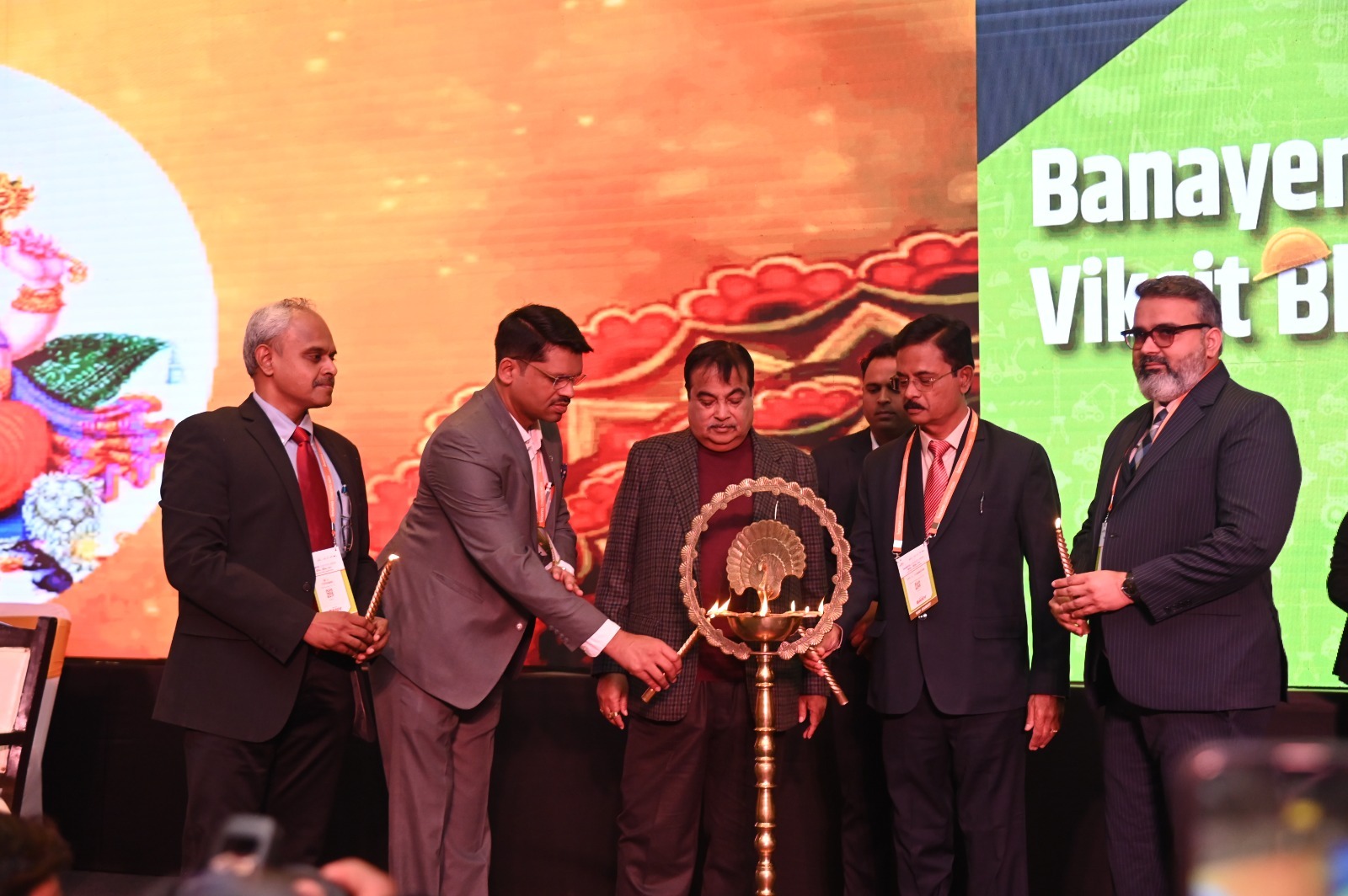India’s premier construction, mining, and infrastructure trade fair, bauma CONEXPO INDIA 2024, opened with grandeur at the India Expo Centre, Greater Noida. The event brought together top industry leaders, policymakers, and global delegates, setting a dynamic tone for India’s infrastructure growth story.
Union Minister for Road Transport and Highways, Nitin Gadkari, inaugurated the event by lighting the ceremonial lamp and unveiling the exhibition catalogue. In his keynote address, Gadkari outlined his vision for India’s infrastructure development, emphasizing sustainable technologies and innovative practices.
Among the dignitaries present were Narender Kumar Kardam, Director of the Border Roads Organisation; Manoj Bapna, Joint DG Works of the Military Engineering Service; Dimitrov Krishnan, Chairman of bauma CONEXPO INDIA 2024 and Managing Director of Volvo CE India Pvt. Ltd.; Bhupinder Singh, CEO of Messe Muenchen India; K. Vishwanathan, All India President of the Builders Association of India; Vinayak Pai, President of the Construction Federation of India and MD & CEO of TATA Projects Ltd.; and Arvind Garg, Immediate Past Chairman of bauma CONEXPO INDIA and Senior Executive Vice President & Head of the Construction & Mining Machinery Business at Larsen & Toubro Ltd.
Nitin Gadkari, during his speech, underscored India’s position as the world’s third-largest construction equipment market, producing 1.35 lakh units annually. He said that this figure is projected to grow to 2.5 lakh units by 2030. With current exports valued at ₹6,700 crore and estimated investments of ₹32,000 crore, the industry’s future looks promising.
Gadkari urged industry leaders to prioritize investments in research and development (R&D) for advanced technologies and innovative designs. He also advocated for the adoption of alternative fuels like biodiesel, ethanol, LNG, hydrogen, and methanol to reduce carbon emissions and enhance sustainability.
He highlighted the growing global recognition of India’s high-quality, cost-effective machinery, with many international companies opting for equipment made in India, even in advanced markets like the US. He stressed the importance of exploring export opportunities through innovative and economical solutions.
“Our highway development projects are transforming India’s transportation network. Projects like the Mumbai-Delhi Expressway, Delhi-Dehradun Expressway, and Kashmir-Kanyakumari Highway—with multiple tunnels, expressways, and bypasses—are reducing travel time and enhancing logistics efficiency. By 2025, we aim to lower India’s logistics cost from 14-16% to 9%, making the country globally competitive,” he added.
The Minister called on industry players to invest heavily in R&D to ensure long-term success and global competitiveness. He outlined four guiding principles for businesses: proven technology, economic viability, availability of raw materials, and marketability of finished products.
“Once again, I congratulate everyone on this exceptional industry platform. I look forward to seeing this sector grow by 60% or more in the coming years. Let’s work together to build a stronger, cleaner, and globally competitive India,” he added.














